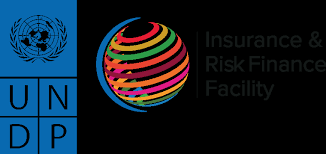The United Nations Development Programme Insurance and Risk Finance Facility’s (UNDP-IRFF) willingness to support the nation develop financial solutions that protect the most vulnerable, and reduce the economic toll of disasters is both welcome and laudable.
Indeed, the UNDP has reiterated its commitment to working with the country’s institutions, insurers and actuarial community to deepen efforts on inclusive insurance solutions that prioritise low-income households, small businesses and vulnerable populations like the urban poor.
This initiative is crucial for attaining the Sustainable Development Goals (SDGs) and other agreed global frameworks for disaster risk reduction.
The UNDP Ghana Deputy Resident Representative, Mr. Sukhrob Khoshmukhamedov, made this pledge while addressing media at the Milliman Global Actuarial Initiative CEO’s roundtable in Accra recently.
Consequently, he urged the country’s institutional leaders to push the boundaries of innovation in insurance and risk finance with an aim of building robust mechanisms that mitigate the financial risks of disasters, including from climate change impact; and securing a future that is resilient, inclusive and sustainable.
However, the Commissioner of Insurance, Mr. Kofi Andoh, has expressed worry about the little use of actuarial expertise in the industry. “One of the reasons accounting for the under-utilisation of actuarial expertise is that there is little appreciation for the value actuaries bring to the table.”
The key focus of the event – organised by the UNDP-IRFF in collaboration with the National Insurance Commission through its Global Actuarial Initiative (GAIN) – included unlocking the values of actuaries, elevating the actuarial profession and shaping the future of insurance in developing economies.
Although the country’s insurance industry has evolved over the years – with gross premiums increasing about tenfold from GH¢458million in 2010 to GH¢6.6billion in 2022, the country’s insurance penetration rate is still below two percent – with more than 75 percent of Ghanaians, representing about 25 million people, being uninsured.
The majority of people in Ghana are low-income earners; hence, even though the coverage has gone up significantly to 44.6 percent, the penetration rate is still low.
That is why UNDP-IRFF’s commitment to working with the country’s institutions, insurers and actuarial community to deepen efforts in inclusive insurance solutions that prioritise low-income households, small businesses and vulnerable populations is laudable and timely.










